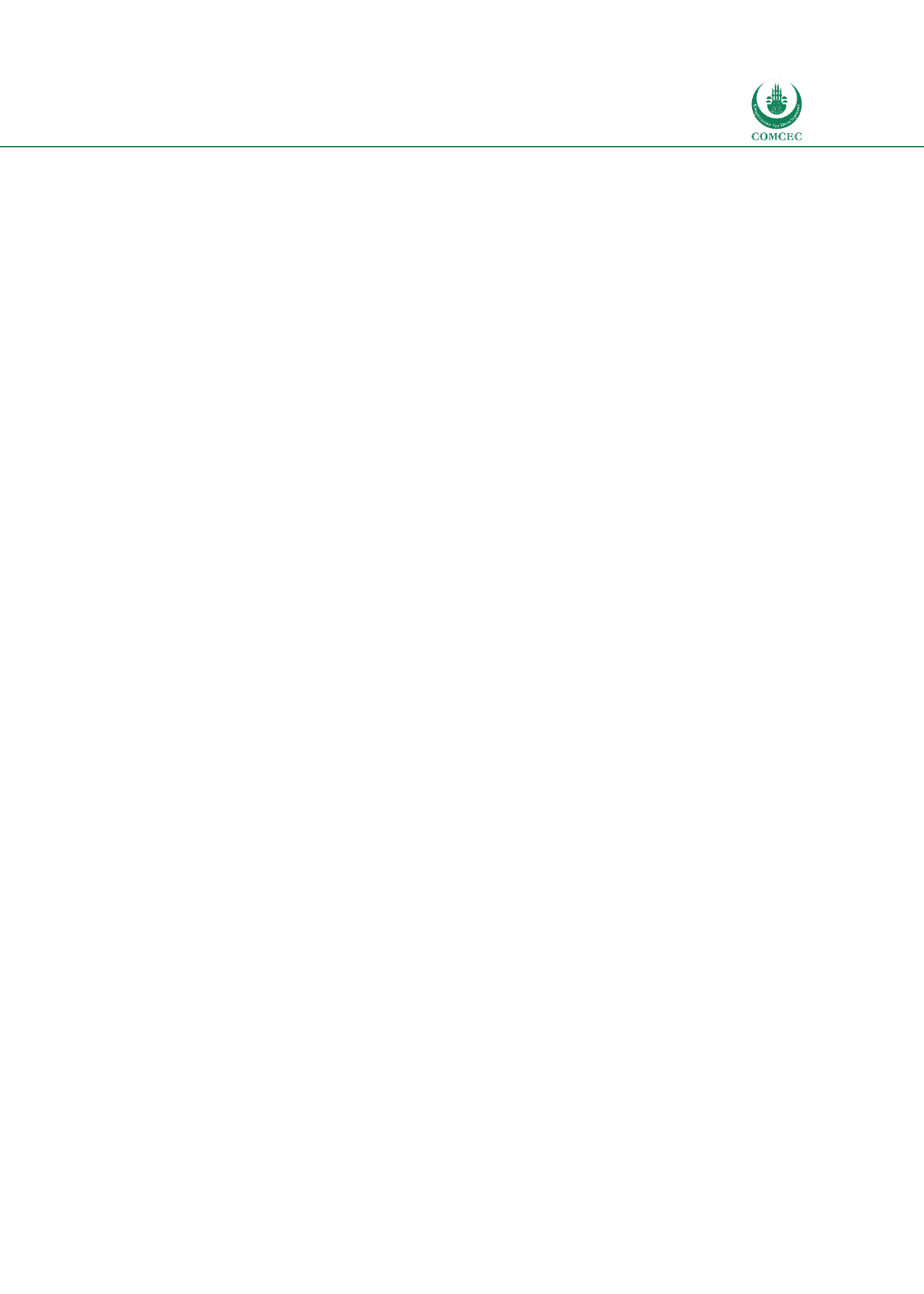

National and Global Islamic Financial Architecture:
Prolems and Possible Solutions for the OIC Member Countries
141
4.10.7. Human Capital & Knowledge Development Framework
Many government and private universities in Sudan offer Bachelor degrees in Finance and
Banking specialization and some of them offer Master and PhD programs. The Sudan Academy
for Banking and Financial Sciences (SABFS) offer programs for bachelor degree on both
banking and insurance studies. It also offers short training courses that help enhancing human
capital in the banking, Finance, and Insurance studies (SABFS, 2016).
Sudan is also involved in the Capacity Building for Improved Quality of the Educational System
and Skills Development Project (CBIQESSDO) with the African Development Bank Group
(ADBG). The purpose of this project is to support the strategic and operational capacity of the
education and training system to maintain the major functions of planning, management and
evaluation that are necessary to develop human capital in Sudan. Although the project is
concerned with all fields of education, it also includes the development of skills and technology
of Banks Human Capital as part of Sudan’s development strategy (2014-2018) and the Bank
Ten-year Strategy (ADBG, 2015).
4.10.8. Summary and Conclusions
Despite the significant expansion of banks and other financial institutions in the last few years,
and the plethora of laws and regulations, Sudan’s financial sector is still underdeveloped
compared to the Sub-Saharan region and most neighboring countries. In spite of these
apparent weaknesses, Sudan became the first country to adopt a completely Islamic financial
sector. The development approach included the conversion of the banking, insurance, and
capital markets, as well as the innovation of the GICs as a tool of liquidity management,
interbank, and general budget finance through open market operations. The system needs
serious action to enhance financial literacy and enlarge access to banking and insurance
services including shortening the procedures for opening bank accounts and improving
banking and insurance services. Banks and insurance companies need to be encouraged to
open new branches, particularly in such a large country with many isolated rural areas that
witness very low financial awareness and are hardly served by well-developed transport
infrastructures.
It is worth noting that issues arising in financial architectural institutions are mitigated to a
large extent in countries that have adopted Islamic legal and financial systems. As the legal and
financial systems in Sudan are Islamic, the disparities in different infrastructure institutions
that exist for Islamic finance vis-à-vis conventional finance in other countries become
irrelevant. For example the country has a unitary Islamic legal and regulatory framework and
has adopted AAOIFI and IFSB standards for its financial sector. However, while the some of the
infrastructure institutions (such as legal, regulatory, Shariah governance, and information
infrastructure) are sound, there is still a need to develop robust liquidity, consumer protection,
financial literacy and human capital development frameworks for the industry.
















